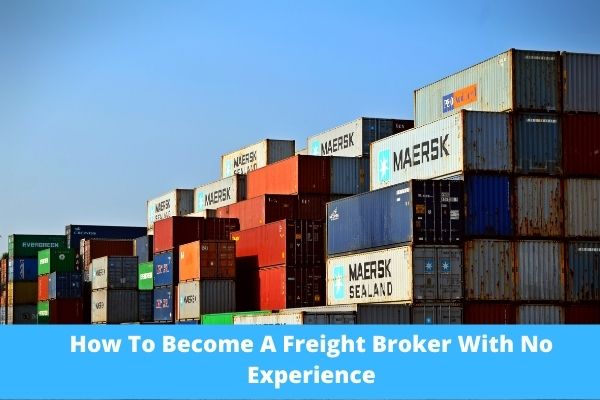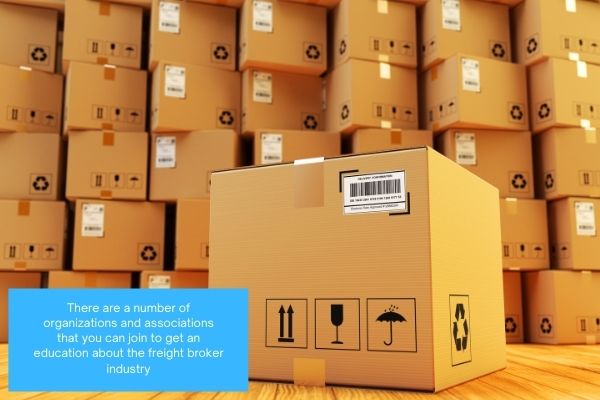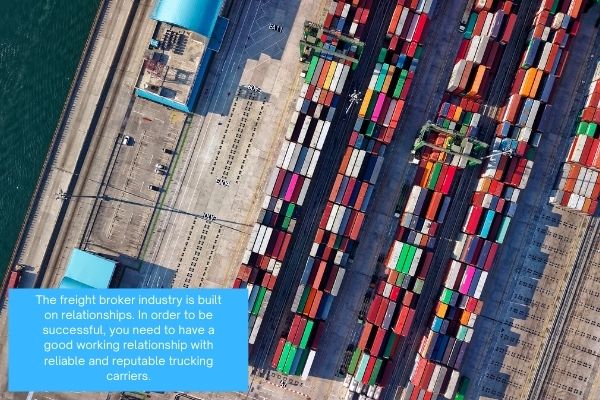
A freight broker is an individual or company that arranges shipments on behalf of the general public, consolidating smaller orders into group shipments for delivery on behalf of their clients.
Freight brokers are often needed in situations where there is a large number of goods to be shipped and no suitable common carrier exists to carry out the shipment, either because it does not exist or because it is not available for the required dates.
Freight brokers typically work with a number of common carriers and freight forwarders to find the best shipping solution for their clients. They also act as a go-between for companies that need to ship goods and the carriers that will transport them.
Many freight brokers have no prior experience in the shipping industry and learn the ropes by working their way up through the ranks. However, there are a few steps that can be taken to increase the chances of becoming a successful freight broker, even without any prior experience. You can either read this short and precise guide on how to become a freight broker or if you want complete guidance with years of experience then you can join a freight broker boot camp at an extremely low cost.
Steps to Become A Freight Broker Without Any Experience.
Here are the steps that you can take to become a successful freight broker without any experience.
1. Learn About The Freight Broker Industry Professionally.
There are a number of organizations and associations that you can join to get an education about the freight broker industry. Most of these associations provide classes to members, for a fee. However, if you do not want to attend any kind of regular classes then freight broker boot camp by Dennis Brown.

2. Attend A Freight Broker Training Class Or Seminar.
You can also elect to attend a freight broker training class taught by an instructor from one of the associations in the industry. Such classes are usually expensive, but they will teach you everything you need to know about how to become a freight broker.
3. Choose the Name and Register Your Company
The next step is to choose the name of your freight broker company and register it with your state. This process can be completed relatively quickly and easily online. You will need the company name, contact information, and registered agent information.
4. Apply To Become Licensed
After you have registered your company, the next step is to apply for a freight broker license. This process can be completed online and will require some basic information about your company, such as its status (sole proprietor, partnership, or corporation) and contact information. You will also need to provide proof of liability insurance.
5. Obtain Errors and Omissions (E&O) Insurance
Freight brokers are not required to have errors and omissions (E&O) insurance, but it is highly recommended. This type of insurance protects freight brokers from any legal action that may be taken as a result of an error or omission on their part.

6. Develop A Business Plan
A business plan is a must-have for any business, and the freight broker industry is no exception. Your business plan should include information about your company, such as its history, mission statement, and goals. It should also include a marketing plan and financial projections.
7. Find Potential Partners
With no experience, you can go for such people who might be interesting in a partnership with you in this business. It will make things way easier as the whole burden will not be only on one person, instead, multiple partners will be working for a single cause, and your success will be guaranteed.
8. Network With Industry Professionals
The best way to learn about the freight broker industry is to network with others in the industry. Join your local chamber of commerce, attend trade shows and expos, and keep in contact with other freight brokers through online networking sites.
9. Find Suitable Trucking Carriers
The freight broker industry is built on relationships. In order to be successful, you need to have a good working relationship with reliable and reputable trucking carriers. Start by contacting local trucking companies and ask if they are interested in working with your freight broker company.

10. Apply For Broker Authority
The next step in becoming a freight broker is to apply for broker authority from the Federal Motor Carrier Safety Administration (FMCSA). This process can be completed online and will require some basic information about your company, such as its status (sole proprietor, partnership, or corporation) and contact information. You will also need to provide proof of liability insurance.
11. Get Your USDOT Number
After you have obtained your broker authority, the next step is to get a USDOT number. This is a unique code that will allow trucking companies and shippers to find your agency with ease. You can apply for one online or through FMCSA’s Outreach and Education Division.
12. Get Freight Broker Bond
You need to get your freight broker bond or BMC-84 before you can start brokering freight. This is a financial surety that guarantees your company will comply with all FMCSA regulations. You can get your bond through an insurance company or bonding agency.
13. Designate a Processing Agent Where You Want to Provide Services
If you want to transport freight in a certain state or states, you will need to designate a processing agent. This is an individual or company that has been authorized by the FMCSA to accept legal documents on your behalf. You can find a list of processing agents on the FMCSA website.

14. Check Your State’s Tax and Corporate Regulations
Each state has its own set of tax and corporate regulations that freight brokers must comply with. Make sure you are familiar with the requirements in your state before starting your business.
15. Get The Needed Equipment
In order to be a successful freight broker, you will need some basic office equipment, such as a computer, fax machine, and printer. You may also want to invest in some software that can help you manage your business finances and operations.
16. Market Yourself
Now that you have developed a solid foundation for your company, it is time to market yourself. Look for business wherever you can find it, which may mean searching online or running local advertisements. Be sure to highlight the services you offer and the benefits of working with your company.
17. Stay Up To Date On Regulations
Freight broker regulations are constantly changing, so it is important to stay up to date on the latest changes. The FMCSA website is a great resource for staying informed on industry news and updates.
Also Read: How To Find Shippers As A Freight Broker?
Conclusion
One of the best ways to learn about the freight broker industry is to attend trade shows and expos. These events offer a wealth of information, as well as the opportunity to network with other freight brokers. You can also find helpful information online, through sites like the Freight Brokerage Association’s website or you can simply join freight broker boot camp by Dennis Brown and learn everything at your home. By following these steps, you will be on your way to becoming a successful freight broker with a solid foundation and the necessary skills to succeed.
